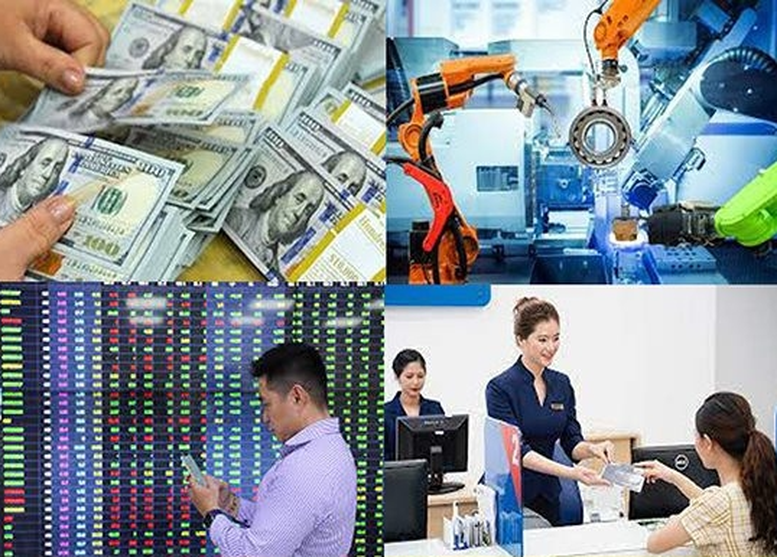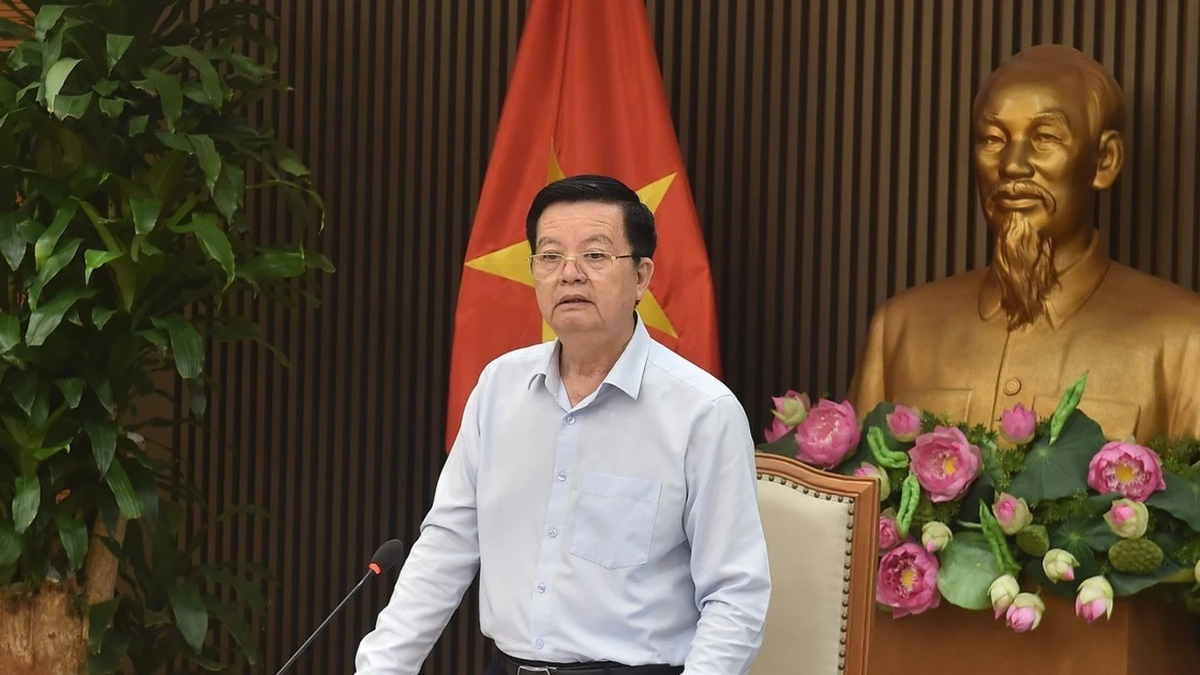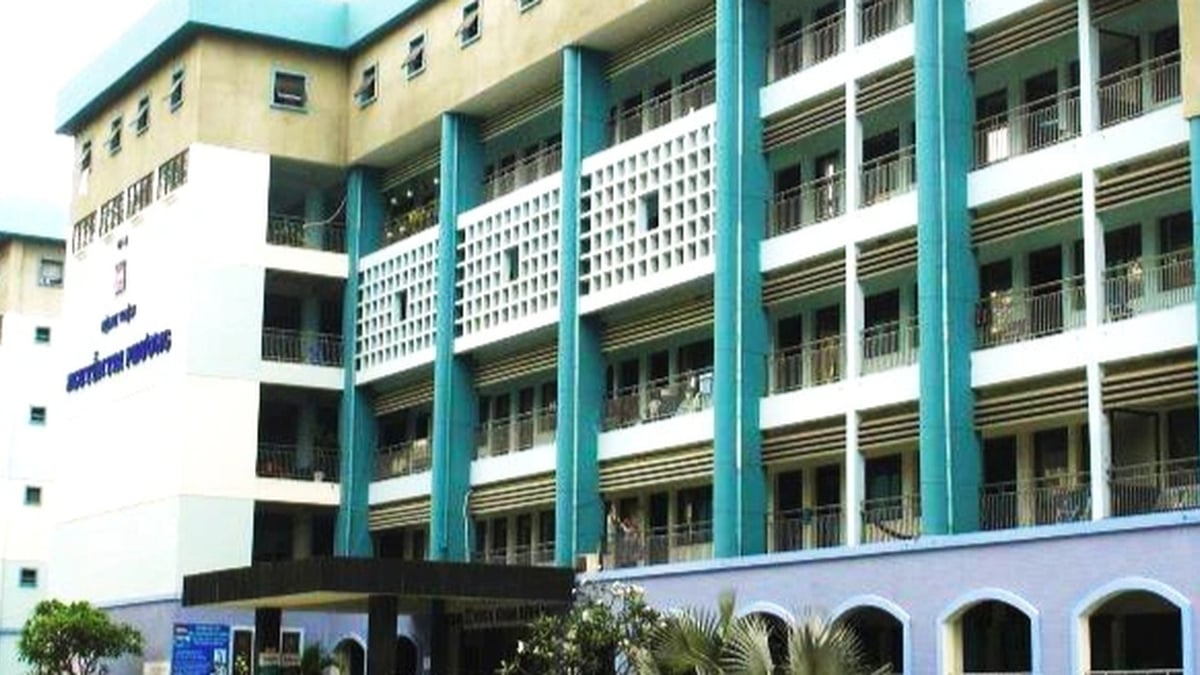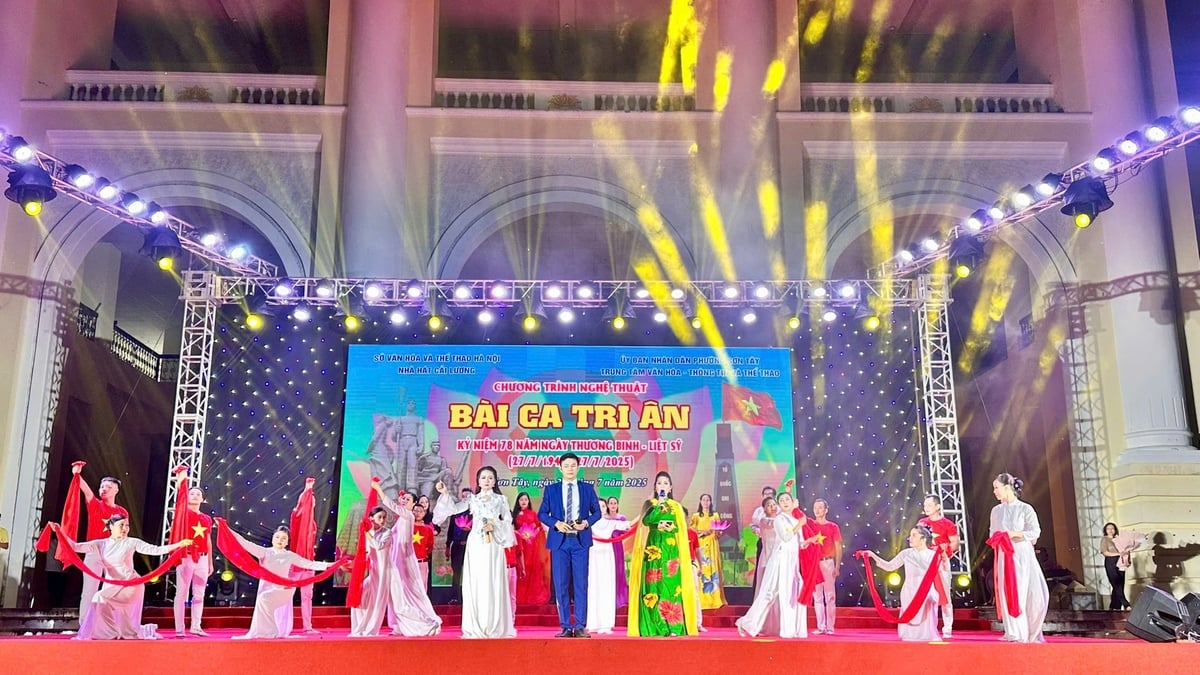Develop socio -economic development plan and state budget estimate for 2026.
The Directive states: In 2025, the world situation will change rapidly, complicatedly, unpredictably, with many difficulties and challenges, especially the US tariff policy and strategic competition with major countries, and the prospect of global growth will decline; science and technology, innovation, and artificial intelligence will develop strongly, bringing both opportunities and challenges to countries. In the country, the socio- political situation and the macro economy will be stable, economic growth will recover positively; proactively respond early, promptly, and effectively to the US tax policy and promote harmonious and sustainable trade; at the same time, complete the arrangement of the apparatus, build a two-level local government, create new development space; promote 03 breakthroughs, the "four pillars" and strategies on science and technology, international integration, private economic development, law making and enforcement, people's health care, education and training.
2026 is the year of the 14th National Party Congress, the election of National Assembly deputies and People's Councils at all levels, and the first year of implementing the 5-year Socio-Economic Development Plan (SEDP) 2026 - 2030, entering the era of national development, prosperity, and double-digit growth from 2026. However, the world situation is forecast to continue to have profound, complex, unpredictable changes, with many difficulties and challenges. The economy focuses on solving internal bottlenecks and problems, while adapting more effectively to the new global context.
In that context, the Prime Minister requested ministries, ministerial-level agencies, government agencies, economic groups, state-owned corporations, provinces and centrally run cities (ministries, central and local agencies) to constantly innovate, be creative, dare to think, dare to do, not waste time and opportunities, consider people and businesses as the center and subject of all policies, promote the will of self-reliance, self-reliance and aspiration to rise up, join hands and unite, turn all difficulties and challenges into breakthrough opportunities, have high determination, make great efforts, and take drastic actions to achieve double-digit growth in the whole country in 2026 and complete the set goals, creating momentum for the successful implementation of the 5-year Socio-Economic Development Plan 2026 - 2030. Focus on developing the Socio-Economic Development Plan, the State Budget Estimate (NSNN) for 2026 and the Financial Plan - NSNN 03 years 2026 - 2030. 2028.
Building a Socio-Economic Development Plan for 2026 with synchronous and focused solutions to ensure double-digit growth target
The Prime Minister requested that the 2026 Socio-Economic Development Plan be built on the basis of a full and substantial assessment of the implementation results of the 2025 Plan and forecasts of the world and domestic situation; analyze, forecast, and proactively develop synchronous, focused, and key plans and solutions to ensure the target of double-digit growth.
Ministries, central and local agencies develop a report on the 2026 Socio-Economic Development Plan with the following main contents:
Assessing the implementation of the 2025 Socio-Economic Development Plan in a realistic manner
Based on the results of the implementation of the first 6 months of 2025, ministries, central agencies and localities will organize assessments and estimate the implementation of the 2025 Socio-Economic Development Plan in all sectors and fields assigned to them for management. In particular, they will focus on clarifying the following specific issues:
Reviewing, supplementing and perfecting institutions associated with improving the effectiveness and efficiency of law enforcement according to Resolution No. 66-NQ/TW of the Politburo; cutting down and simplifying administrative procedures, business regulations, removing bottlenecks; resolving backlog projects; building a legal framework to implement the Politburo's Resolutions on private economy, innovation... Perfecting regulations on arranging and streamlining the State apparatus, promoting decentralization and delegation of power...
Closely, synchronously, harmoniously and effectively manage and coordinate monetary policies, fiscal policies and other macro policies. In particular, clarifying the management of credit, interest rates, exchange rates, gold market management; state budget revenue and expenditure; price management; policies on tax, fee, charge exemption, reduction and extension; promoting public investment; attracting foreign investment; promoting harmonious and sustainable trade with partners; creating breakthroughs for new growth drivers.
Reorganizing the apparatus; strengthening decentralization, delegation of authority, enhancing the responsibility of leaders; discipline, order, administration associated with inspection, supervision, control of power and resource allocation, improving enforcement capacity; preventing and combating corruption, waste, negativity, and group interests; promoting the effective arrangement and handling of public assets after mergers, streamlining the apparatus.
Focus on completing a synchronous and modern strategic infrastructure system, prioritizing key and important national transport projects, expressway systems, inter-regional projects and large urban infrastructure, digital transformation infrastructure; connecting expressway systems with airports and seaports and deploying high-speed railway and urban railway systems; removing difficulties and obstacles for large-scale projects. Attracting investment in infrastructure projects under the public-private partnership model.
Restructuring industries, sectors and within industries in conjunction with innovation of growth models, improving productivity, quality, efficiency, competitiveness, autonomy, adaptability and resilience of the economy.
Comprehensively develop cultural and social fields, ensuring harmonious connection with economic development; ensure social security, improve people's lives. Innovate and improve the quality of social policies to meet development requirements...
The 2026 socio-economic development plan must be specific, quantitative, and have clear results.
The Prime Minister requested ministries, central and local agencies to study and identify the basic issues of the 2026 Plan, in which growth and development goals and targets must be specific, quantitative, and have clear results, ensuring that the national growth target reaches double digits in 2026 and is consistent with practical conditions and development level.
Regarding the main orientations and tasks for socio-economic development in 2026, it is necessary to continue to accelerate the completion of a complete market economic institution, in the direction of socialism, modernity, dynamism and integration. Identify the work of building and enforcing laws as the "breakthrough of breakthroughs" in perfecting the country's development institutions. Promote the improvement of the investment and business environment, encourage innovation, attract all resources for development; focus on reviewing and cutting administrative procedures, shifting from "pre-inspection" to "post-inspection", reducing compliance costs for people and businesses. Amend, supplement and promulgate new legal documents to ensure a synchronous legal basis for the operation of the state apparatus according to the three-level model.
Synchronously and effectively coordinate fiscal, monetary, investment, market, price, trade and other policies to achieve the target of double-digit economic growth while maintaining macroeconomic stability, major economic balances, controlling inflation, and ensuring major economic balances.
Promote industrialization, modernization, economic restructuring, create a new, high-quality growth model, increase labor productivity. Continue restructuring 03 key areas of public investment, state-owned enterprises and credit institutions. Restructure production and service sectors towards modernization, improve productivity, quality and efficiency. Synchronously deploy solutions to stimulate consumption, promote exports; speed up the disbursement of public investment capital. Promote national branding, prevent smuggling, trade fraud and counterfeit goods.
Private economic development is the most important driving force of the national economy, the pioneering force to promote growth, create jobs, improve labor productivity, national competitiveness, industrialization, modernization, and economic restructuring towards green, circular, and sustainable development as required in Resolution No. 68-NQ/TW of the Politburo; promote entrepreneurial spirit in the whole society.
Continue to accelerate the construction of a synchronous and modern infrastructure system, especially transport infrastructure, exploiting new development spaces, taking urban areas as the driving force for regional development. Effectively implement planning and develop infrastructure in the Mekong Delta region. Focus resources on strategic and key infrastructure; develop energy infrastructure to meet the requirements of high economic growth, ensuring energy security. Develop digital economy, digital society, promote the application of digital technology.
Continue to effectively implement fundamental, comprehensive, breakthrough innovation in education and training development, human resources to meet development requirements; improve the quality of education at all levels, comprehensive training, focus on education and training in remote areas, ethnic minority areas; perfect the education system in an open, flexible, and interconnected direction, creating lifelong learning opportunities for all citizens and implementing training according to the needs of the labor market.
Create an open and transparent investment environment; attract domestic and foreign capital for science and technology development, research facilities, high-tech industries, strategic technologies, core technologies, source technologies, digital technologies; promote startups, innovation, and digital transformation.
Innovate the national governance model in a modern direction. Continue to build and perfect a lean, strong, efficient, effective and efficient organizational apparatus. Promote decentralization and delegation of authority in conjunction with resource allocation, improve implementation capacity and strengthen inspection and supervision. Strengthen power control; prevent corruption, waste, negativity, group interests and local interests. Tighten administrative discipline and order. Build a team of cadres with qualifications, capacity and good moral qualities, with aspirations to rise up and develop; protect cadres who dare to think, dare to do, dare to take responsibility for the common good.
Focus on and do well in social security work, develop culture, education, health care, improve people's material and spiritual life and health.
Strengthening natural disaster prevention, proactively responding to climate change, ensuring water security; effectively managing and using resources and protecting the environment; implementing sustainable development goals; developing a circular economy.
Firmly ensure national defense and security; resolutely and persistently fight to protect and maintain the independence, sovereignty, unity and territorial integrity of the Fatherland; maintain political security and social order and safety. Focus on modernizing the material facilities of the People's Army and People's Public Security forces; develop a self-reliant, modern, dual-use defense and security industry.
Synchronously, comprehensively and effectively deploy foreign affairs and international integration, contributing to consolidating a peaceful, stable and favorable environment for development.
Strengthen information and propaganda, improve the effectiveness of mass mobilization work, consolidate trust, and create social consensus.
Building the 2026 State budget estimate, the 3-year financial - State budget plan 2026-2028
Regarding the 2026 State budget estimate, the Directive clearly states that the 2026 State budget revenue estimate must be developed in accordance with current policies and regimes, ensuring correct, sufficient and timely collection of State budget revenue sources, specifically calculating factors of increase, decrease and shift in revenue sources due to changes in policies and laws on budget, taxes, fees and charges and implementing the tax reduction roadmap, forecasting the world and domestic economic and financial situation. Strengthening management, preventing revenue loss; effectively managing new revenue sources, resolutely handling tax arrears and strictly controlling tax refunds.
Strive for the domestic revenue estimate in 2026 (excluding land use fees, lottery fees, proceeds from the sale of state capital at enterprises, dividends, after-tax profits and the difference between revenues and expenditures of the State Bank) to increase by an average of 10-12% nationwide compared to the estimated implementation in 2025 (excluding factors of increased or decreased revenues due to policy changes), with the growth rate in each locality consistent with economic growth and revenue sources arising in each locality. The estimated revenue from import-export activities in 2026 will increase by an average of 5-7% compared to the estimated implementation in 2025.
Develop the 2026 State budget expenditure estimate to ensure compliance with legal provisions; principles, criteria, and norms for State budget allocation (if any); meet the requirements of budget restructuring associated with promoting the rearrangement of the apparatus organization and building a two-level local government.
Thoroughly grasp the principles of publicity, transparency and the requirement to practice thrift and combat waste right from the task determination stage, ensuring the implementation of unified tasks from the budget preparation stage to the allocation, management and use of the State budget; develop a budget close to the implementation capacity, minimize the cancellation of the budget and transfer of resources to the following year. Proactively review overlapping policies and tasks, prioritize expenditures according to the level of urgency, importance and implementation capacity in 2026. Only submit to competent authorities to issue new policies, projects and tasks when really necessary and with guaranteed resources; identify reductions in regular and investment expenditures associated with the arrangement of administrative units at all levels and the development of a 2-level local government organization model; fully anticipate the funding needs to implement new policies, regimes and tasks that have been decided or approved by competent authorities.
In particular, for agencies and units with special financial mechanisms: Central state administrative agencies and units from 2024 onwards are allowed to apply special financial mechanisms to implement the preparation of revenue and expenditure estimates for 2026 based on regulations in legal documents according to the provisions of the law on the State budget, Resolution No. 104/2023/QH15, Resolution No. 142/2024/QH15, Resolution No. 160/2024/QH15 of the National Assembly. In case the competent authority approves the amended content, it shall be implemented according to the approved mechanism.
Regarding the development of local budget estimates, the People's Committees of provinces and centrally-run cities direct departments, branches, People's Committees at lower levels and relevant units to focus on developing estimates that closely follow the socio-economic development goals of the locality. The 2026 local budget estimates ensure sufficient resources to implement policies, regimes and tasks issued by competent authorities; prioritize resources for key and focal tasks, ensuring efficiency and savings.
Regarding the 3-year financial plan - State budget for 2026-2028 , based on the draft documents of the 14th National Congress of the Party; Resolutions and Conclusions of the Central Committee and the Politburo on restructuring the budget, public debt, streamlining the apparatus, streamlining payroll, innovating public service units, reforming salaries and social insurance, rearranging administrative units at all levels and building a 2-level local government organization model; Based on the law on the State budget, public investment, public debt and relevant legal provisions, the orientation on the National Financial Plan, borrowing and repayment of public debt for the 5-year period 2026 - 2030 at the national and local levels shall be submitted to competent authorities for approval according to regulations. The Ministry of Finance and the Department of Finance shall preside over and coordinate with relevant agencies to develop the 3-year State budget - financial plan for 2026 - 2028 and the 3-year debt management program at the national and provincial levels.
Ministries, central agencies and level I budget agencies and units at the provincial level prepare financial plans - State budget for 3 years 2026 - 2028 within their management scope and send them to the financial agencies at the same level for synthesis.
Source: https://baochinhphu.vn/thu-tuong-chinh-phu-chi-thi-xay-dung-ke-hoach-phat-trien-kinh-te-xa-hoi-va-du-toan-ngan-sach-nha-nuoc-nam-2026-102250528153212989.htm





























![[Photo] National Assembly Chairman attends the seminar "Building and operating an international financial center and recommendations for Vietnam"](https://vphoto.vietnam.vn/thumb/1200x675/vietnam/resource/IMAGE/2025/7/28/76393436936e457db31ec84433289f72)





































































Comment (0)